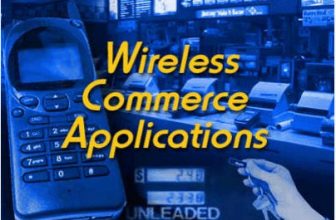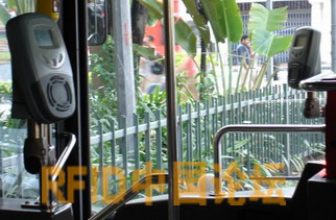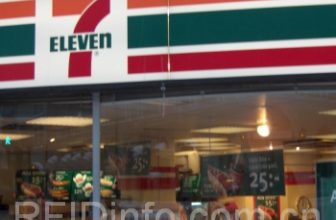
Deutsche Bahn displays Touch&Travel NFC mobile payment system
[ad_1]
Germans may soon use mobile phones and RFID technology to pay for various transportation expenses, such as buses, subways and trains. At a press conference held today, German national railway company Deutsche Bahn (DB) and German mobile phone service provider Vodafone demonstrated Touch&Travel-a system that combines RFID technology and mobile phones, which can be used to replace the paper currently used by the national public transportation network. ticket.
In the next two years or so, these two companies and some software and hardware companies will install Touchpoints terminal equipment at public transport stations in Germany. Touchpoints will contain passive 13.56 MHz RFID inlays that comply with the near field communication standard. Using a mobile phone with a built-in NFC RFID chip, users can directly pay for transportation instead of buying paper tickets.
It is a huge project to build an RFID network that uses mobile phones to pay for transportation. Germany is one of the largest bus markets in Europe. Deutsche Bahn transported more than 2.6 billion people last year. At today’s press conference, DB Chairman Hartmut Mehdorn showed the working process of Touch&Travel in front of the news media.
Passengers first activate the NFC chip by pressing a button on a mobile phone that supports Touch&Travel, and then wave the mobile phone in front of the Touchpoint at the starting site. The specially designed SIM card in the mobile phone stores the data of the passive RFID tag in Touchpoint, turning the mobile phone into an electronic ticket, which can be read at will during the journey.
Then, passengers can freely combine different modes of transportation to reach their destination. Along the way, the conductor holds an RFID reader to check the electronic ticket stored in the passenger’s mobile phone. When arriving at the terminal, passengers will wave their mobile phones again before a Touchpoint to finally confirm their journey. The system then sends the data to a central computer, which calculates the distance and time spent on the journey, and automatically deducts the cost.

The conductor holds the RFID reader to check the electronic ticket stored in the passenger’s mobile phone
“Mobile phones are already one of the must-haves for people to go out,” said Friedrich Joussen, head of Vodafone Germany. “Mobile phone charges have a huge advantage: first, everyone has a mobile phone; in addition, the mobile phone itself is a very useful intermediary.” The main partner of Deutsche Bahn in this project, Vodafone has developed a SIM card that stores Touchpoint RFID tag data, which can be regarded as an electronic ticket in transportation applications.
One of the main advantages of the Touch&Travel system, Mehdorn said, is that it has the potential to combine multiple transportation networks. At present, if a passenger needs to reach a certain destination, he may need to take different means of transportation, such as trains and buses, then he has to buy different tickets. This process is so complicated that many people prefer to drive by themselves.

Deutsche Bahn displays Touch&Travel NFC mobile payment system
Touch&Travel can greatly simplify the travel process. Mehdorn said it can attract more passengers to abandon their own driving and take the Deutsche Bahn train. “Our goal is to provide customers with a comfortable and simple transportation network so that they can use public transportation facilities in any part of Germany,” he explained.
Deutsche Bahn announced at a press conference that the company will launch a pilot project this year. A total of two hundred people will participate in the pilot project. The scope of the project is limited to the urban area of Berlin.
In the early stages of the pilot project, participants will still buy paper tickets. If the pilot project is successful, then this system will be tested in the actual application environment this fall, passengers do not need to buy paper tickets, but receive the total transportation expenses of the month at the end of the month. It is estimated that Touch&Travel will not be fully launched in Germany until 2010 at the earliest. One of the reasons is that NFC mobile phones have not yet been launched on the market on a large scale.The mobile phone used in the test is manufactured by Motorola, and Motorola hopes that the development of this kind of project can speed up the promotion of NFC mobile phones
“Because the market demand is not yet mature, most mobile phones do not contain chips,” said Olaf May, general manager of Motorola’s mobile devices in Germany. “When the market matures, every mobile phone will be equipped with a chip.” According to May, it is not complicated to integrate the chip into a mobile phone. NFC will definitely become one of the essential functions of mobile phones in 2010, just like text messaging.
Currently, a total of 1,500 Touchpoint units have been installed in Berlin bus stations. Project participants include NXP (providing Touchpoint terminal equipment) and Atron Electronic (providing project software).
In 2007, Rhein-Main Verkehrsverbund (RMV), the bus network operator in Frankfurt, Germany, expanded the application of Near Field Communication (NFC) technology in the area’s transportation so that passengers can use mobile phones to purchase, store tickets and view travel arrangements. Rhein-Main has installed NFC tags on the platforms of 700 buses, trams and subways, including airports in the city, giving Frankfurt the largest NFC transportation network in Germany.
See details:Frankfurt expands the application of NFC in transportation payment
[ad_2]






